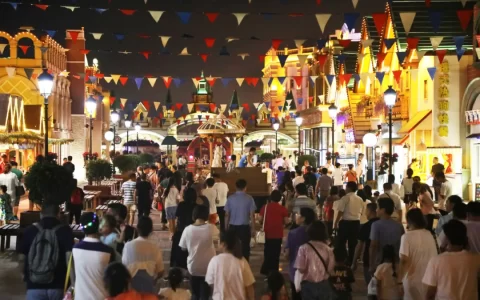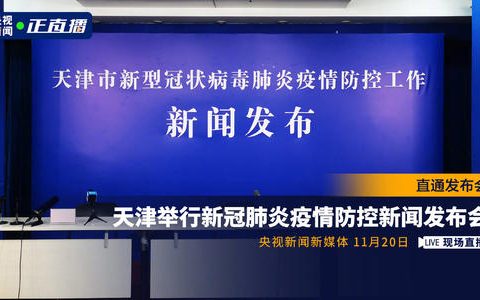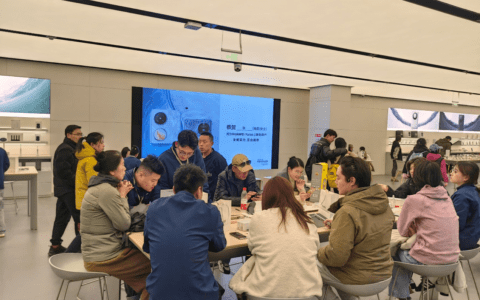Martin Rune Hoxer is the Executive Director for Innovation Centre Denmark (ICDK) in Shanghai, a board member of the Ministry of Foreign Affairs Global Tech Board, and a member of the advisory board for business programs at Aalborg University. He has vast experience within innovation, internationalization and business development.
何穆现任丹麦科技创业中心(上海)主任,是丹麦外交部全球技术委员会董事会成员、奥尔堡大学商业咨询委员会成员,在创新、国际化及商务拓展领域拥有丰富的经验。
高大伟:何穆,你非常了解中国,我知道你也去过天津。天津将在本月举行世界智能大会。你来自丹麦,关于智慧城市你们有很多经验可以分享。我的问题很简单:什么样的城市称得上智慧城市?
何穆:高教授,非常感谢。我认为这个问题看似简单,但遗憾的是答案却很复杂。无论如何,我们能做的就是从丹麦的角度出发,为中国提供目前还没有的东西。这就意味着我们可能会用不同的思路来看待这个问题,因为对我们来说,智慧城市不仅与技术有关,主要还是要树立全局观念,同时要以人为本。
因此,要打造智慧城市就需要为城市居民提供新的机遇。我们知道中国的大城市也在积极推进城市化建设。丹麦实际上只有一个城市人口超过一百万。而在中国,你也了解,数字非常惊人。中国有一百个城市人口超过一百万。因此人们越来越来需要更加可持续的解决方案。
因此,我认为智慧城市主要是以创新的方式来发展环保技术、确保材料的循环利用、以更高的标准建设城市。这意味着对于现有的建筑群来说,无论是在改造还是升级过程中,目标都是为了达到更高的标准,使其更加节能。因此这些不同的方面都需要我们通过更全面的方法进行分析,从更全面的角度进行城市规划。
基本上,要考虑如何应用技术,如何改造升级现有的建筑群,如何以城市居民为出发点,不管是小孩还是老人,或是需要在城市生活的家庭。这就需要考虑到资源、拥堵、出行方式等问题,如何有效利用资源,比如水资源。我们需要考虑到许多因素,但我认为以人为本总是明智之举。
高大伟:非常感谢,何穆。你把智慧城市与可持续性联系在一起,这个话题涉及的内容非常广泛。在人的层面,丹麦的幸福指数高居榜首,闻名全球。因此我想提到另外一个有趣的概念:宜居城市。在你看来,什么样的城市称得上是宜居城市?
何穆:在我看来,在大多数斯堪的纳维亚人看来,宜居城市与我之前所提到的内容息息相关,与生活在城市的居民息息相关。也就是说,城市是否能满足你在人生不同阶段的需求?城市里是否有绿化?这是疫情期间人们开始广泛讨论的话题。这些超大城市中是否规划了足够的户外空间?
我想在这里引用一个数字,出自丹麦在几年前所发布的一份报告。我们当时与丹麦的一些大机构合作,探究如何建设更好的城市,为市民提供更好的机遇。如果我们能更好地规划城市居民的出行方式,就能带来社会经济效益。
因此,汽车所带来的不仅是污染和拥堵问题。不鼓励人们开车,鼓励人们骑自行车,为骑行提供更完善的基础设施,哥本哈根在这一方面做得很好。报告显示,骑车一公里就相当于带来一欧元的社会经济效益。每次你让一个人骑行一公里,就能从医药费或者其他费用中节省一欧元。这是丹麦或者北欧的模式,也是我们福利制度的一部分。这能产生许多社会经济效益。城市规划者和从政者可以通过建设更加宜居的城市节省不少成本。
高大伟:非常感谢,何穆。很高兴天津能提供世界智能大会这样的平台,让我们共享经验,因为大家所处的环境各不相同。丹麦采取的措施在重庆、成都等这样的大城市很难推广,但经验分享很重要,这有助于全球智慧城市的建设。再次感谢,感谢你对本次大会的支持。谢谢你,何穆。
何穆:谢谢你,教授。
David: Martin, you know China very well, and also, I know you have been in Tianjin. You know the World Intelligence Congress which is going to take place in May. You come from Denmark. You have a lot of things to say about “smart city”. I want to ask you a very simple question. What makes a city smart?
Martin: Thank you very much, professor. I think that the question is simple, but unfortunately, I think the answer is complex. Anyways, I think what we are here to do from the Danish side is simply to provide something which is not here. So, it means that we are probably taking another approach on this question, because to us, it’s not about just technology. It’s basically to take a holistic view, and to put the people in the center of the equation.
So, it means that in order for it to be smart, it needs to provide new opportunities for the people living in the cities. We know that urbanization is very much on the agenda also here in China with the big cities. Coming from Denmark, we actually only have one city with over 1 million people. Here in china, as you know, numbers are amazing. You have 100 cities with over 1 million people. So, there’s a need, there’s a growing demand for coming up with more sustainable solutions.
So, I think what is smart is basically to give new innovative ways of how we can provide environmental technologies, how we can make sure that we are reusing our materials, how we build in a better standard. So, it means that what we can see from the existing building mass is that when we do retrofits, or when we are upgrading the building mass, it is for its better standards, it’s more energy efficient. So, a lot of these different things has to do with taking a more holistic approach on these different things. So, that also has to do with taking a more holistic perspective on urban planning.
Basically, taking into account both what can we do with technology, what can we do with the existing building mass that we have here, and how can we take a point of departure in the people that live in the city, whether it’s children, elderly, or it’s the families that also need to live in the cities. So, that goes for resource, congestions, mobility, how we use resource like water, for instance. So, there’s a lot of things that go into it, but putting people first, it’s basically, I think, the smart move.
David: Thank you very much, Martin. Of course, you associated a smart city with sustainability, and of course, this is a very rich theme. But talking about people, you are very famous in Denmark for the happiness index. So, I come to another very interesting notion, the notion of a “livable city”. In your eyes, Martin, what makes a city livable?
Martin: Well, in my eyes, and I think also in the eyes of many Scandinavians, I would say this has to do with what I said before. I mean, it has to do with the life that is lived in the cities. So, it means, does it provide for the needs that you have in different phases of your life? Do we have green spaces? That is something that has come up also during this pandemic. Do we actually have the outdoors that we need in these mega cities as well?
So, I think, one number that I would like to cite is actually something that a report that came out in Denmark a couple of years ago. We are working with big organizations in Denmark on building better cities and providing better opportunities for the people. And there are social-economic benefits from looking at how we can construct mobility in the cities in a better way.
So, basically, it’s not only about pollution and the congestions that you’ll get from the cars. But basically, if you take the cars away, and you put people on the bikes, and you provide a better infrastructure for biking, which is also something that Copenhagen is very known for. I mean, 1 kilometer actually equals 1 euro in social-economic benefits. So, every time you put 1 person on a bike that rides 1 kilometer, you are saving 1 euro from hospital bills, from a lot of these different things that in the Danish model or the Nordic model, it’s part of the welfare model as well. So, there’s a lot of social-economic benefits. Urban planners and politicians, they can save quite a lot from looking at how can we provide for more livable cities.
David: Thank you very much, Martin. It is great to have such a platform in Tianjin, the World Intelligence Congress, also for experience sharing, because the contexts are different. Of course, you cannot do what you are doing in Denmark in a big city like Chongqing or Chengdu, or so many big cities in China, but this is important to share experience in order for all of us across the world to build smarter cities. Thank you very much, and thank you for the support to the World Intelligence Congress. Thank you, Martin.
Martin: Thank you, professor.
来源:津云
本文为转载,不代表微天津立场,仅供读者参考。

 微信扫一扫
微信扫一扫  支付宝扫一扫
支付宝扫一扫 

